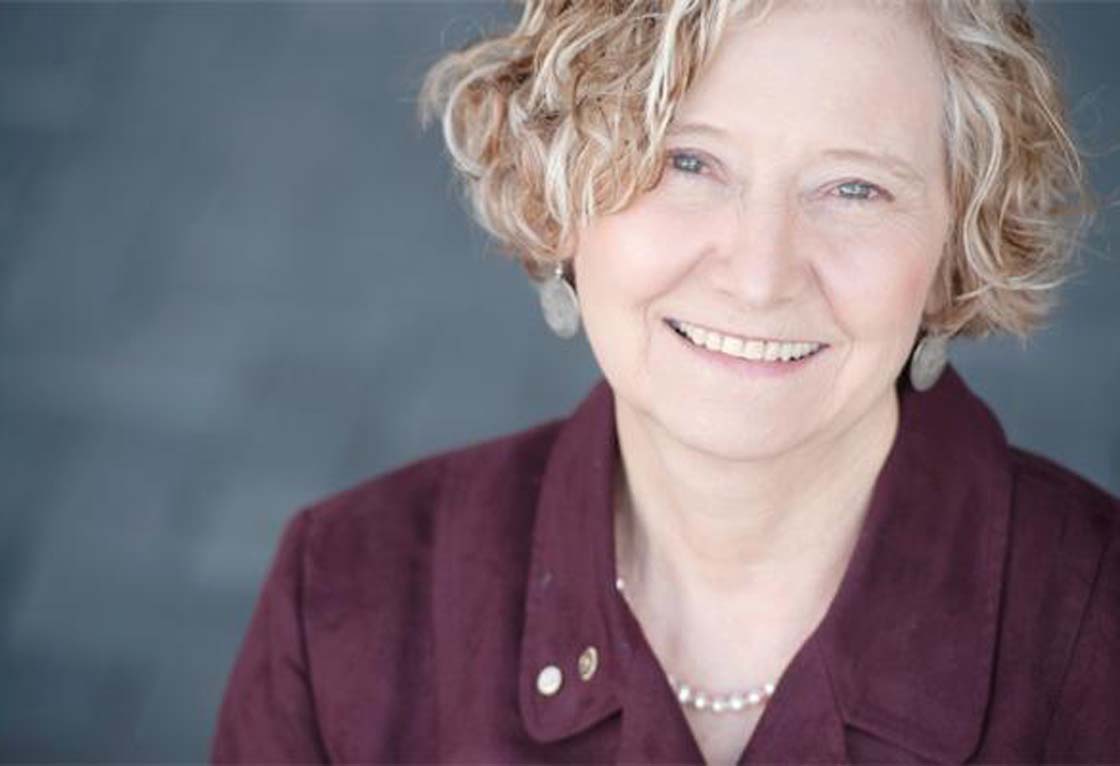VANCOUVER – Green Leader Jane Sterk has a penchant for purple — in a spiritual kind of way that guides her belief that her party will make history by winning a seat in the British Columbia legislature next week.

“It’s a colour of spirituality so it’s a good choice,” she said in an interview after a news conference where she again donned purple as she promoted her party’s renewable energy policies.
Sterk, 66, doesn’t practise a particular religion but said her spirituality is based on a strong connection to her roots and a drive to create a better future for her four- and seven-year-old grandsons.
“I have a sense of the future that is beyond my own lifetime, which I feel is profoundly spiritual.”
Sterk said she entered B.C. politics to break through the Liberal and NDP stronghold and to give British Columbians another alternative and ensure an economic future that’s dependent on clean technology, not pipelines.
After 30 years of trying to gain a foothold in the legislature, Sterk said the Greens have a chance of winning four to five seats on southern Vancouver Island, where she’s running against incumbent and former NDP leader Carole James.
The party’s strongest contender on the island may be climate scientist Andrew Weaver, who’s taking on incumbent Ida Chong, the Liberal MLA who eked out a win against her NDP opponent in 2009.
On Friday, a full-page Liberal-party ad in the Victoria Times-Colonist newspaper suggested the Greens have a good chance of at least splitting the votes.
The ad, with a photo of Sterk at the top, compared her to NDP Leader Adrian Dix and Liberal Leader Christy Clark.

Get daily National news
“Who is strong enough to stand up for BC?” says the headline in the region where the New Democrats hold 10 of 14 seats, and the Greens may be poised to make a breakthrough while the B.C. Conservatives seem to have fallen flat.
“Jane Sterk and the Greens have strong, clear views about how to protect our coast,” says the ad, which also states that while Dix and the NDP are flip-flopping over the expansion of the Kinder Morgan pipeline, Clark wants five conditions met before any heavy oil project will be considered for B.C.
Sterk said British Columbians are ready for a change from the two main parties that have ruled the province since 1991, when the New Democrats took office before a scandal ushered in the upstart Liberals.
“I think people now have an experience with the B.C. Liberals, who are really the old Socreds. We have an experience of 10 years of the NDP government so when people cast their ballots in 2013 it’s a very different premise than we’ve ever had before.
“This time I think voters see the Green party as offering real change,” said Sterk, who ran as a federal candidate in 2004 and sat as a councillor in the Vancouver Island community of Esquimalt between 2005 and 2008.
But Sterk said that while she’s campaigning hard to win a seat, she will leave politics if she’s not elected on Tuesday.
The former Edmonton school teacher and psychologist, who once co-owned a computer retail store employing 60 people and sailed to Mexico with her husband 13 years ago, said she’ll have plenty of career options if and when she makes her exit.
“I will be doing something that will be life affirming and optimistic and contributing as a change agent as I’ve always done in all of my careers that I’ve had in my life,” said Sterk, who was born in Alberta and moved to B.C. in 1997, shedding her bulky winter coat for good.
Sterk said that if she doesn’t lead the Greens after next week, she’ll continue working to push the party into the legislature at the 2017 election, with someone else at the helm.
“There’s a political reality that if you take a party twice into an election and you don’t win your own seat you have to recognize that both the party and you as a person have to make a choice,” she said.
“I’m not going to make that decision based on a hypothetical. I am making the decision based on the results of the election. I believe the results of the election will deliver me into the legislature so I will be continuing as leader.”
The woman who was considered most trusted of all four party leaders in a poll after the TV debate two weeks before the election said she decided to enter politics after her trip to Mexico, where she became aware of North Americans’ materialistic and wasteful lifestyle.
“We have a moral obligation not only to consider the impact of what we do on ourselves and our families and our communities in B.C., but also those families in Mexico that we never see and never think about.”







Comments